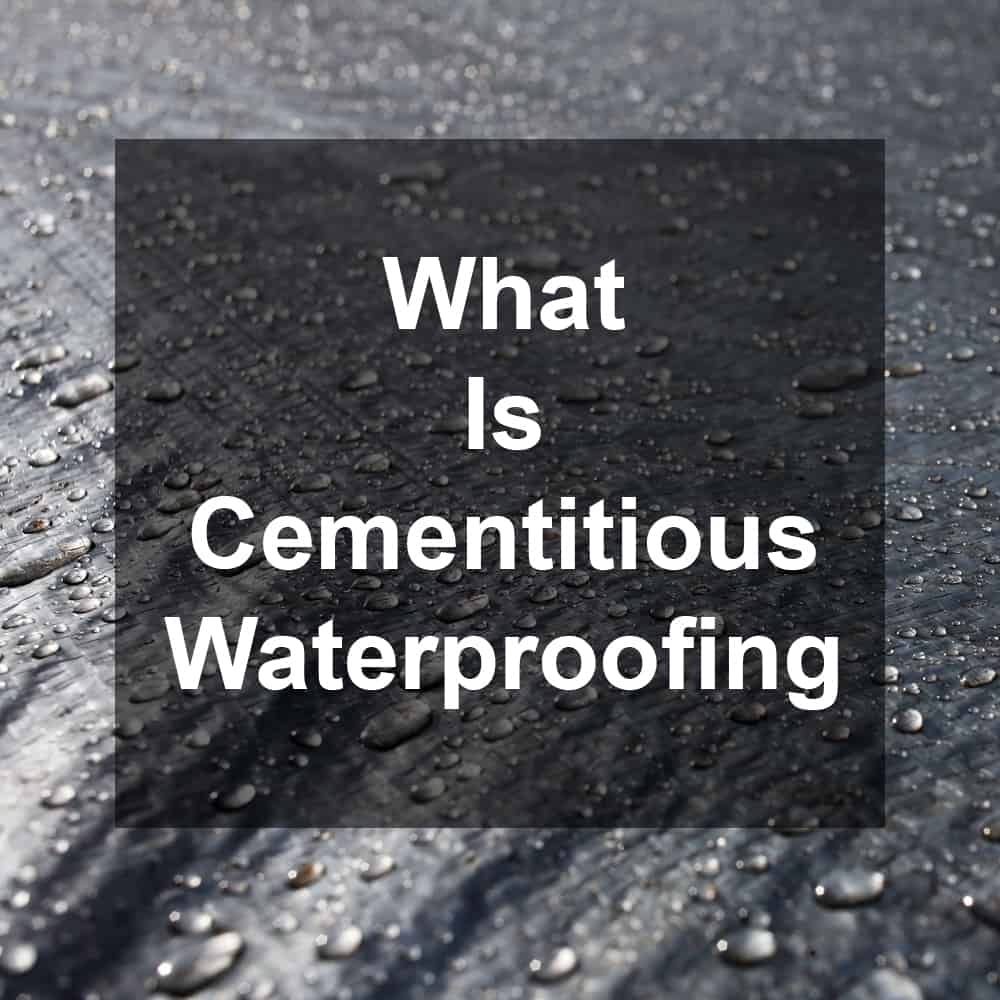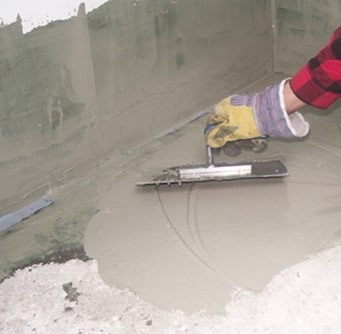Waterproofing is the formation of impervious barrier over surfaces of foundation, roofs, walls, and other structure of building to prevent water penetration in a building and home. The surface must be water-resistant and waterproof.
Cementitious waterproofing is the most common method for waterproofing. Its main component is cement, sand, and liquid, some may spend extra to add acrylic addictive membrane to get better bonding and durability. It Is a semi-flexible waterproofing system that uses a mixture of cement and other materials to provide the waterproofing characteristics. It provides a good bonding to the structure to protect against water infiltration to seal against damp soil and seepage. This waterproofing membrane does not stretch since it is made of cement. This membrane usually requires 2-3layer of coating to enhance the waterproofing protection to the concrete surfaces.
Cementitious waterproofing membrane is easy to apply with a trowel, brush, roller or even spray method. This method is often used in internal wet areas, it is a rigid, semi flexible type of waterproofing. Since it is commonly used in internal more often, it is not exposed to sunlight and weathering, thus it does not go through contract and expansion process.
It is the easiest method of waterproofing, the material for cementitious waterproofing is not expensive and are available in local store. It is easy to mix and apply, there are premix material as well for user convenience. It is highly resistant to abrasion and corrosion to withstands climatic conditions. It is strong, durable, and versatile, capable of bring formed into shape to uphold the building foundation.
One of the most critical challenges of cementitious membrane, is the moisture penetration into the concrete structure. Water damage can include deterioration and corrosion. Cementitious membrane does not provide long term waterproofing solution, due to its main component is cement and sand, it does not expand therefore it is vulnerable to crack with the hot climate in Singapore. It is difficult to provide a durable protection as it requires an additional material to improve its strength. This membrane is permeable therefore it can allow penetration of water, it can lead to the formation and growth of toxic mold and mildew.
Cementitious waterproofing is widely used in swimming pool, balcony, terrace, bathroom, kitchen, and wet area. It is also commonly use in commercial building such as foundation and basement wall, water storage tank, concrete roof, parking basement and sewage system.
There are several other waterproofing solutions in Singapore. The most common waterproofing membrane and method for waterproofing are Cementitious waterproofing membrane, Bituminous waterproofing membrane, Clear penetrative waterproofing membrane (CPT), and the modern Polyurethane (PU) waterproofing membrane.
SWC Construction, a BCA approved contactor, are approved and registered by the Building & Construction Authority (BCA) of Singapore as a waterproofing contractor. We are proudly Bizsafe certified company to provide the best solution to resolve your leakage issue in the residential and commercial. We provide free consultation to understand your requirement to help and solve your water leaking.




